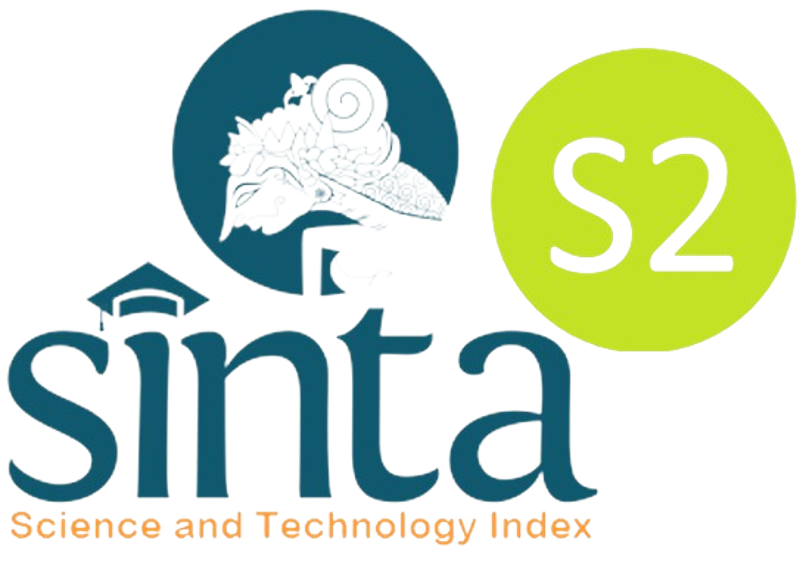Reconstructing of Higher Order Thinking Skill through Enriching Student’s Argumentation Skills
Abstract
Abstract: Reconstruction of Higher Order Thinking Skill through Enriching Student’s Argumentation Skills. Objectives: This study aims to reconstruct the high-level skills of students through enrichment of argumentative skills. Methods: This research is a qualitative descriptive study involving the population of class XI high school students in Bandar Lampung. The number of samples involved in this study were 65 students. Data collection techniques used in the form of in-depth observation through interviews and written tests. Findings: Based on data analysis of written arguments produced by students about the problem presented, the average student is in a Level 1 coding scheme (above 60%). This indicates that there has been a cognitive process that has led to the ability to identify questions, facts, relevant knowledge, creative ideas, and formulate predictions. Conclusion: Thus it can be concluded that the enrichment of argumentative skills are able reconstructstudent’s higher order thinking skills.
Keywords: HOTS, argumentation skills, cognitive process.
Abstrak: Rekonstruksi Keterampilan Berpikir Tingkat Tinggi melalui Pengayaan Keterampilan Berargumentasi. Tujuan: Penelitian ini bertujuan untuk merekonstruksi keterampilan tingkat tinggi siswa melalui pengayaan keterampilan berargumentasi. Metode: Penelitian ini merupakan penelitian deskriptif kualitatif dengan melibatkan populasi kelas XI siswa sekolah menengah atas di Kota Bandar Lampung. Jumlah sampel yang terlibat pada penelitian ini sebanyak 65 siswa. Teknik pengumpulan data yang digunakan berupa observasi mendalam melalui wawancara dan test tertulis. Temuan: Berdasarkan analisis data argumen tertulis yang diproduksi siswa tentang masalah yang tersaji rata-rata siswa berada dalam skema pengkodean Level 1 (diatas 60%). Hal ini mengindikasikan bahwa telah terjadi proses kognitif yang mengarah pada kemampuan mengidentifikasi pertanyaan, fakta, pengetahuan yang relevan, kreasi ide, dan merumuskan prediksi. Kesimpulan: Dengan demikian dapat disimpulkan bahwa pengayaan keterampilan berargumentasi dapat merekonstruksi keterampilan berpikir tingkat tinggi siswa.
Kata kunci: keterampilan berpikir tingkat tinggi, keterampilan berargumentasi, proses kognitif.
Full Text:
PDFReferences
Ben-Chaim, D., Ron, S., & Zoller, U. (2000). The disposition of eleventh-grade science students towardcritical thinking. Journal of Science Education and Technology, 9(2), 149–159.
Boddy, N., Watson, K., & Aubusson, P. (2003). A trial of the five Es: A referent model for constructivistteaching and learning. Study in Science Education, 33, 27–42, 2003.
Boddy, Watson, & Aubusson, (2003). A trial of the five Es: A referent model for constructivist
Cobb, P. (1994). Constructivism in mathematics and science education. Educational Studyer, 23, 4. de Bono, E. (1976). Teaching thinking. London: Penguin.
Dillon, J. (2002). Perspectives on environmental education-related study in science education.
Duschl dan Osborne (2002) Supporting and Promoting Argumentation Discourse in Science Education. Studies in Science Education, 38 (2002) 39-72
Erduran, S., Simon, S., & Osborne, J. (2004). TAPing into argumentation: Developments in the use of Toulmin’sargument pattern in studying science discourse. Science Education, 88(6), 915-933.
Gagnon, M. J., & Abell, S. K. (2008). Perspectives: Explaining science. Science and Children, 45(5), 60-61.
Goodson, L, FJ. King, & Rohani, F. (2015). Improving student’s higher-order thinking competencies, including critical evaluation, creative thinking, and reflection on their own thinking. (Level, Declarative Knowledge, Plan, Quality Enhancement), Study in Science Education.
Heong, Y.M., OthmanW. Binti., Yunos,J.B.M, et all (2011). The Level of Marzano Higher Order Thinking Skills among Technical Education Students. International Journal of Social Science and Humanity, Vol. 1, No. 2, July 2011.
Heong, Y.M., Yunos, J.M., Othman, W., Hassan, R., Kiong, T.T., & Mohamad, M.M. (2012). the needs analysis of learning higher order thinking skills for generating ideas. Procedia-Social and Behavioral Sciences, 59: 197-203.
International Journal of Science Education, 24, 1111–1117.
Kelly dan Takao (2002) Epistemic levels in argument: An analysis of university oceanography students' use of evidence in writing. Science Education. Volume86, Issue3 May 2002 Pages 314-342
Leou, M., Abder, P., Riordan, M., & Zoller, U. (2006). ‘Using HOCS-centered learning’ as a pathwayto promote science teachers’ metacognitive development. Study in Science Education, 36(1–2),69–84
Osborne, J. (2014). Scientific Practices And Inquiry In The Science Classroom. In N. G. Lederman, & S.K. Abell (Eds.), Handbook of Study on Science Education, Volume II (pp. 579– 599). New York: Routledge.
Osborne, J., Simon, S., & Erduran, S. (2004). Enhancing the quality of argumentation in school science. Journal of Study in Science Teaching, 41(10), 994-1020
Senk, S. L., Beckmann, C. E., & Thompson, D. R. (1997). Assessment and grading in high school mathematics classroom. Journal for Re-search in Mathematics Education, 28, 187-215. doi:10.2307/749761
Syam & Efwinda. (2018). Analisis Keterampilan Berpikir Tingkat Tinggi Dengan Menerapkan Model Problem Based Learning (PBL) Pada Mata Kuliah Fisika Dasar di FKIP Universitas Mulawarman. Seminar Nasional Fisika 2018. Program Pascasarjana Universitas Negeri Makassar
teaching and learning. Study in Science Education, 33, 27–42, 2003.
Toulmin, S. (1958). The uses of argument. Cambridge, England: Cambridge University Press
Wilks, S. (1995). Critical and creative thinking: Strategies for classroom inquiry. Armidale, NSW: EleanorCurtain
Wu & Hsieh, 2006). Developing Sixth Graders’ Inquiry Skills to Construct Explanations in Inquiry-based Learning Environments. International Journal of Science Education Vol. 28, No. 11, 15 September 2006, pp. 1289–1313
Zohar, A., & Dori, Y. J. (2003). Higher order thinking skills and low achieving students: Are they mutuallyexclusive? Journal of the Learning Sciences, 12(2), 145–183.
Zoller, U., Ben-Chaim, D., Ron, S., Pentimalli, R., & Borsese, A. (2000). The disposition toward critical thinking of high school and university science students; An inter-intra Israeli–Italian study. International Journal of Science Education, 22(6), 571–582
Refbacks
- There are currently no refbacks.
Copyright (c) 2020 Jurnal Pendidikan Progresif

This work is licensed under a Creative Commons Attribution-ShareAlike 4.0 International License.
View My Stats

The copyright is reserved to The Jurnal Pendidikan Progresif that is licensed under a Creative Commons Attribution-ShareAlike 4.0 International License.





